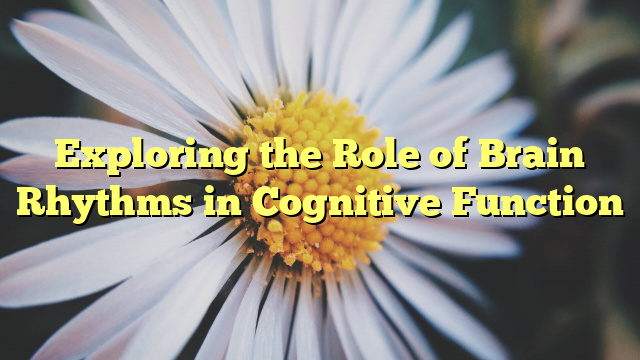Neuroscience, the study of the nervous system and the brain, has long been a field of fascination and intrigue. Over the years, researchers have made significant strides in understanding the complexities of the brain and how it functions. In recent years, breakthrough findings have shed light on the mysteries of the brain, paving the way for new discoveries and advancements in the field of neuroscience.
The Brain: A Complex and Mysterious Organ
The brain is arguably the most complex and mysterious organ in the human body. It serves as the command center for all of our thoughts, emotions, and actions. Despite decades of research, there is still much about the brain that remains unknown. However, recent breakthrough findings have begun to unlock some of the mysteries of this enigmatic organ.
Breakthrough Findings in Neuroscience
One of the most exciting breakthrough findings in neuroscience is the discovery of neuroplasticity. Neuroplasticity refers to the brain's ability to reorganize itself by forming new neural connections in response to learning, experience, or injury. This finding has revolutionized our understanding of the brain's capacity for change and adaptation.
Another breakthrough in neuroscience is the development of advanced imaging techniques, such as functional magnetic resonance imaging (fMRI) and positron emission tomography (PET) scans. These imaging tools allow researchers to observe the brain in action and study its activity in real-time, providing valuable insights into how different regions of the brain communicate and interact with each other.
Conclusion
Unlocking the mysteries of the brain is an ongoing endeavor that requires collaboration, innovation, and a willingness to think outside the box. Breakthrough findings in neuroscience have provided us with a deeper understanding of the brain and its complexities, opening the door to new possibilities for treating neurological disorders, enhancing cognitive function, and improving overall brain health. As researchers continue to push the boundaries of what we know about the brain, we can look forward to even more exciting discoveries in the future.
FAQs
Q: What are some common neurological disorders that researchers are studying?
A: Some common neurological disorders that researchers are studying include Alzheimer's disease, Parkinson's disease, epilepsy, and multiple sclerosis.
Q: How does stress impact the brain?
A: Chronic stress can have negative effects on the brain, leading to changes in brain structure and function. High levels of stress hormones, such as cortisol, can impair memory, attention, and decision-making abilities.
Q: Can the brain regenerate cells?
A: While the brain does not regenerate cells like other organs in the body, it does have the ability to form new neural connections and pathways through neuroplasticity.
Unlock Your Mental Potential



